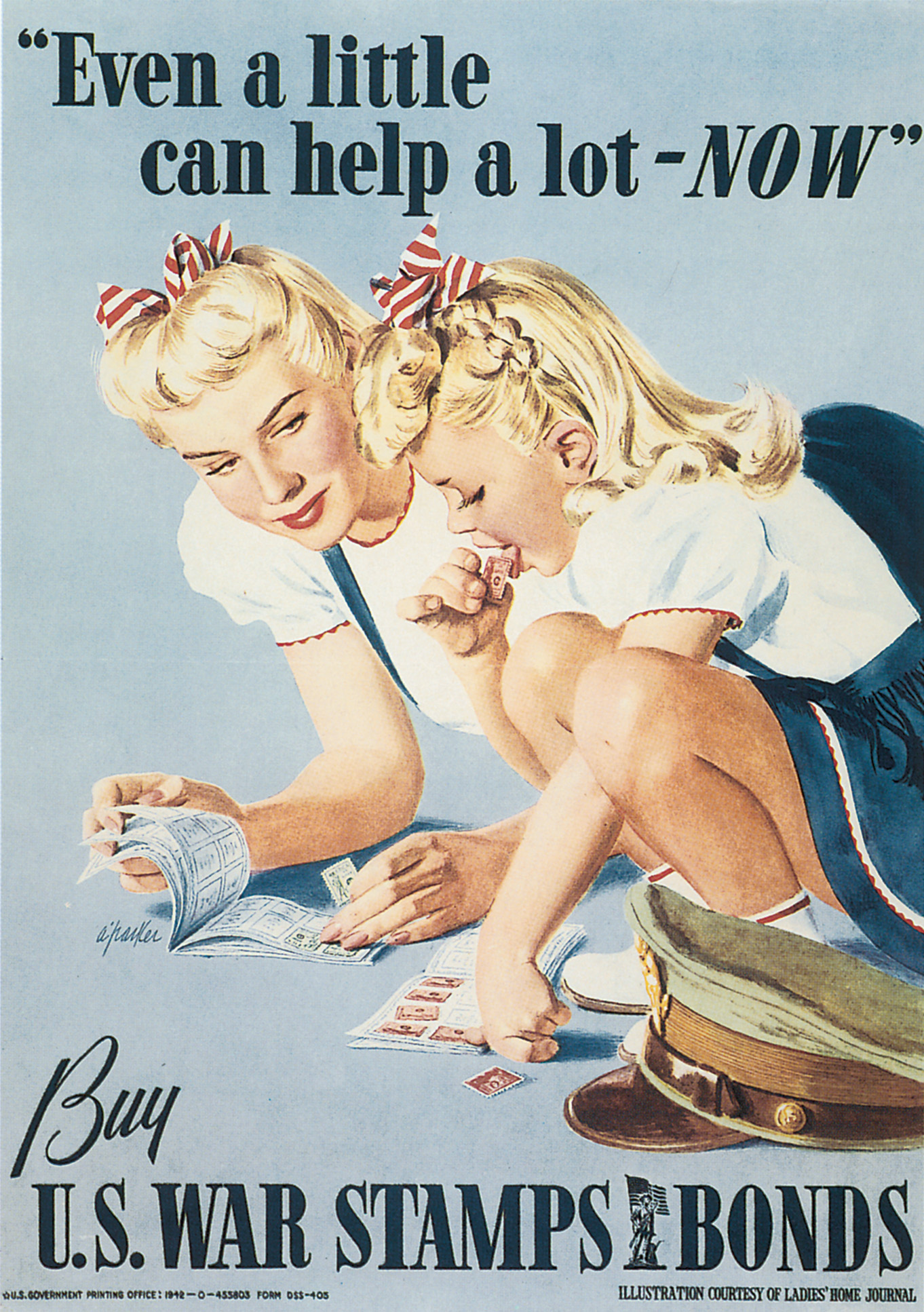Lessons from the 1940s Woman – Women’s Work Is Good Work

US War Bond Poster, 1942
The World War II era was a pivotal time for women, a hinge between the traditional home-based women’s role and the modern career-based role. Wartime posters show the fullness of a woman’s place in society and reveal the values that drove this generation to victory. Through these posters we’ll see lessons we can learn from women of that era.
She’s canning. In a frilly apron. And she’s smiling.
To many modern woman, this image looks hokey. Doesn’t she know that kind of work is drudgery? A waste of her potential? Beneath her?
While the women’s movement opened up traditional men’s work to women, somehow in the process, traditional women’s work was demeaned. Child care, cleaning, laundry, and routine cooking are seen by many women as drudge work. When I gave up a promising full-time career in pharmacy to stay home with my children, I was told I was wasting my education and intellect, and I’d be bored out of my skull.
In the 1940s, women saw all work as good work. They knew raising children was an honor and privilege. They knew their labor in the home benefitted the family and society. Because they saw the inherent value of their work, most women found it fulfilling. For further fulfillment, women volunteered with civic and church organizations, or engaged in arts and hobbies.
Women can now work outside the home in traditional men’s jobs. That is a good thing. Single women don’t need to marry in order to eat, and married couples have options, especially welcome in a tough economy.
But why must we demean housework to gain that option? Why is traditional women’s work of less value than traditional men’s work? Isn’t that attitude, in its essence….sexist?
Perhaps it’s time to recognize that all work has an element of drudgery to it, whether it’s scrubbing toilets or passing paperwork from the inbox to the outbox. Perhaps it’s time to recognize that all work has value and benefits the family and society as a whole. If we cling to this, maybe we can find joy and fulfillment in our labor, whether paid or not.
I’m thankful that many young women nowadays are rediscovering the “domestic arts,” and are embracing the same duties the previous generation rejected.
I’m off to fold laundry. With a smile. I might even put on an apron.


[…] Lessons from the 1940s Woman – Women’s Work Is Good Work […]
Sad that they put those of us down that chose to stay at home with our kids.
Bonnie – yes, it is. Things seem to be shifting, however, for which I’m thankful.
I feel very blessed to have been able to stay home with my children until they were all in school. I didn’t want anyone else to raise my children. My husband and I were also blessed in that we pastored so our children were with him or me. It was a very special time for us all and I look back and realize what a gift it was.
Debrah – that is definitely a gift! I’ve been blessed to be home with my kids too. Even though I worked on-call as a pharmacist, my husband and I were able to coordinate it so I worked on an evening when he was home. I love how close the kids are to their dad too 🙂